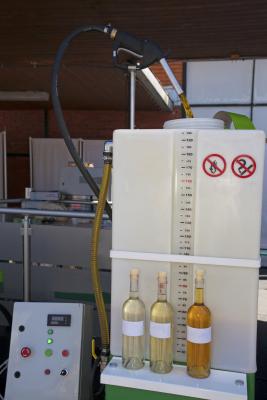
Biofuels are combustive fuels made from recently harvested plants. They work much like fossil fuels: they burn when ignited, releasing energy that can be converted to motion in a car, or heat for a house. Biofuel can be sourced from a number of different crops, as well as excess plant matter from other industries. Using biofuels is one way of reducing dependency on fossil fuels.
A biofuel is usually made from plants that can be grown and harvested efficiently. In the United States, ethanol from corn is one of the primary biofuels, and it is also used as an additive for gasoline. In Brazil, sugar cane is the primary source of ethanol. The United Kingdom uses a different biofuel called biodiesel, which is generated from palm oil. Turning organic material into a usable fuel involves a refining process that generally includes fermentation, chemical reactions, and heat.
Harvested plant matter is processed into liquid biofuel. In the case of corn, the plant matter is broken down into a "mash." Enzymes break down the corn mash into sugars, which are fermented with yeast to produce alcohol and plant byproduct. The alcohol is filtered from the mash, and the remaining plant matter is used for livestock feed. With the final addition of heat, the alcohol is processed into ethanol, which can be used as a biofuel.
Unlike gasoline blended with ethanol, a biofuel requires a specialized vehicle to be used as fuel. Flexible-fuel vehicles are designed to run on both gasoline blends and ethanol blends. In the United States, biofuel is usually sold as a blend of 85 percent ethanol and 15 percent gasoline, which allows the ethanol to ignite more easily in cold weather. Like gasoline, the ethanol combusts to move the pistons inside your car's engine, turning your drivetrain to provide propulsion to the wheels.
Because the plants used to produce biofuels can be grown and harvested, making them renewable resources, biofuel is a more sustainable alternative to traditional fossil fuels. It still requires a lot of energy to produce, so it's far from perfect; however, according to the Energy Future Coalition, for every gallon of oil used in processing and distributing biofuels, 12 to 20 gallons of biofuel can be produced. Very little conversion needs to take place to make regular diesel engines run on biodiesel. Rubber fuel lines need to be replaced with metal ones, and filters need to be checked in the weeks following the conversion. For non-diesel engines, a full engine conversion is necessary.